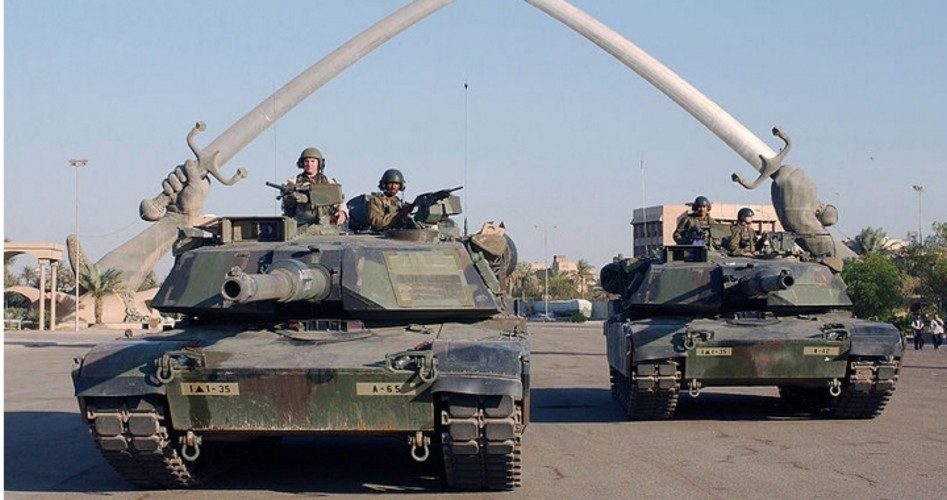
Just in time for March 19, the 10th anniversary of the American- and British-led invasion of Iraq in 2003, the U.K.’s Guardian reported Monday that both the British intelligence service — MI6 — and the U.S. Central Intelligence Agency had been informed by sources coming from Iraq’s foreign minister and head of intelligence that there were no active weapons of mass destruction in Iraq. That information contradicts the prewar statements of President Bush, Vice President Cheney, and other U.S. officials, as well as then-British Prime Minister Tony Blair, all of whom spoke only of evidence that Iraq’s WMD program was an active and growing menace to the security of not only Western nations, but also Israel and much of the Arab world.
Blair had told Parliament before the war that intelligence showed Iraq’s nuclear, chemical, and biological weapons program was “active,” “growing,” and “up and running,” the Guardian reminded its readers. The contrary information was not passed on to subsequent inquiries, according to a special British Broadcasting Company’s Panorama program, the London daily reported. The BBC claimed an intermediary from Naji Sabri, Saddam Hussein’s foreign minister, told Bill Murray, the CIA’s station chief in Paris at the time, that Iraq had nothing in the way of WMD.
Sabri denied that, claiming the Panorama story is “totally fabricated,” the Guardian reported. Panorama also reported that three months before the war an MI6 officer met Iraq’s head of intelligence, Tahir Habbush al-Tikriti, who also said that Saddam had no active WMD. The meeting in the Jordanian capital of Amman took place days before the British government published what the Guardian called “its now widely discredited Iraqi weapons dossier” in September 2002.
Lord Butler, the former cabinet secretary who led an inquiry into the use of intelligence in the run-up to the invasion of Iraq, told Panorama that he was not informed of Sabri’s comments, and that he should have been. “There were ways in which people were misled or misled themselves at all stages,” Butler told the BBC investigators.
One unidentified MI6 officer was quoted as saying that allegations of an active and growing WMD program from sources that later were proved to be unreliable were “torn off the teleprinter and rushed across to Number 10 [Downing Street, the prime minister’s residence].” Another called it “wishful thinking” that would lead to “the crock of gold at the end of the rainbow.”
The BBC program said MI6 stood by claims that Iraq was buying uranium from Niger, though these were dismissed by other intelligence agencies, including the French. Critics have noted that considering how France was maligned in the United States for its unwillingness to support the war against Iraq, it is ironic that French intelligence on that score proved more accurate than that of either the United States or Great Britain. France saved itself much in the way of lives, fortune, and post-invasion embarrassment by refusing to join the anti-Iraq Western-style “jihad.”
The BBC Panorama program, entitled “The Spies Who Fooled the World,” might more accurately have been called “The Spies Who Fooled the Part of the World That Wanted to Be Fooled” — most notably, the governments of the United States and the United Kingdom, and those who believed in the reliability and honesty of U.S and U.K. “intelligence.”
The program showed that MI6 agents continued to treat Iraqi claims about WMD seriously even after they were exposed as fabrications. That includes claims about mobile biological warfare containers, made by Rafid Ahmed Alwan al-Janabi, a German source codenamed Curveball. Al-Janabi admitted to the Guardian in 2011 that all the information he gave to the West was fabricated.
Panorama said it asked for an interview with Tony Blair, but the former British prime minister, who left office in 2007, said he was “too busy.” Perhaps on this side of the Atlantic, former President George W. Bush, former Vice President Richard Cheney, and former CIA Director George Tenet were also too busy to respond to the report.


